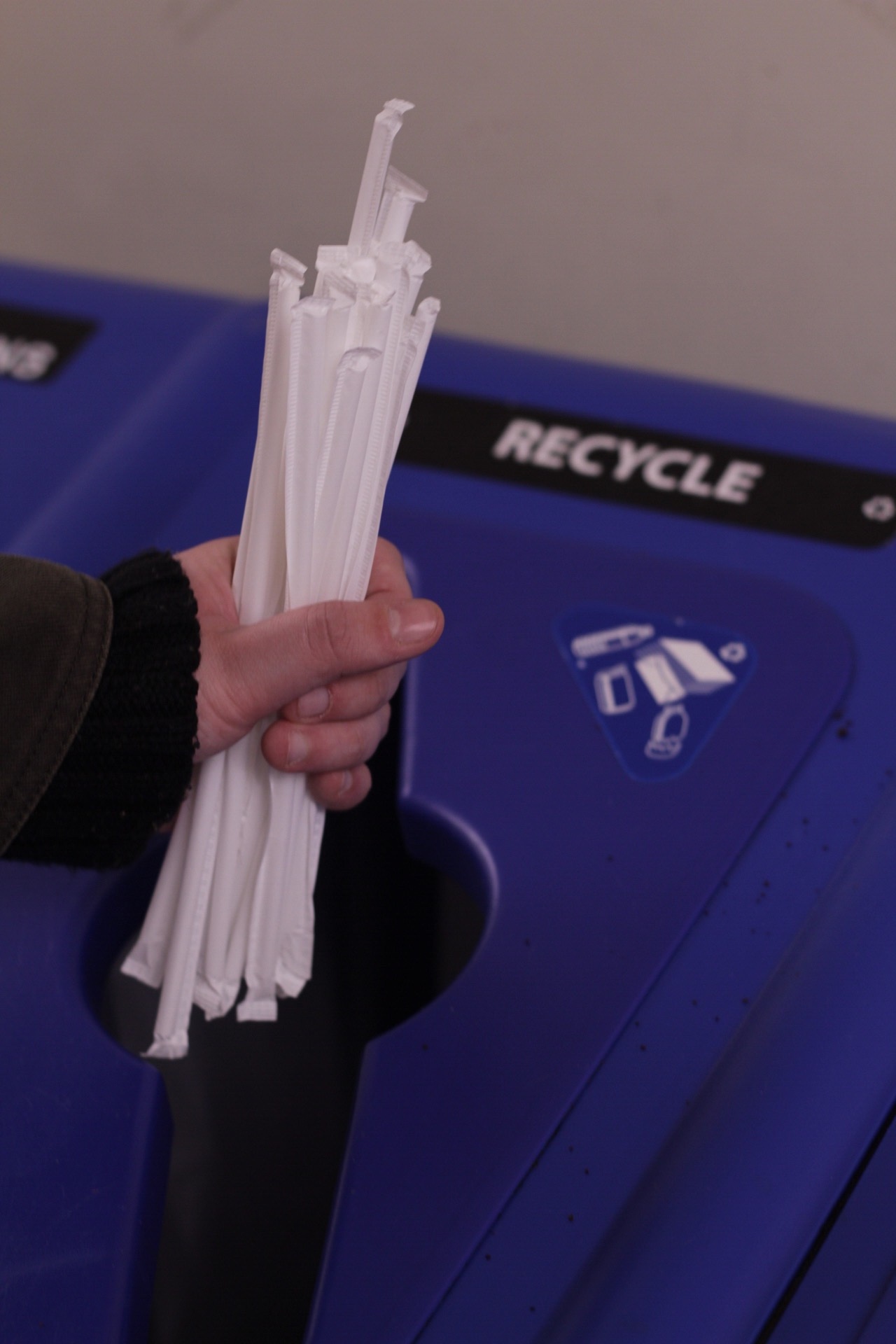By Nick Schleh, Staff Writer
Single-use plastic drinking straws may be banned from USM. Universities, restaurants, and businesses across the nation are transitioning away from the environmentally harmful plastic straws in order to promote sustainability.
Katelyn Seavey, Student Body President and President of the Campus Kitchens Project at USM, is leading the student initiative to eliminate plastic straws and making the campus more green-friendly. “Single-use straws are something that no one really thinks about…until it becomes a huge issue like it is now. I would absolutely love for our university to be a plastic straw free environment.”

While plastic straws can technically be recycled, most firms will not accept them due to their fragility, size, and potential for falling into the crevices of the recycling machinery, reported Get-Green-Now.com. Plastic straws are frequently used around the nation and many activists believe that eliminating their over-usage is a strong step towards limiting the world’s plastic pollution problem. A ban on plastic straws is not the final solution, but a step towards more sustainable consumption habits.
Plastic pollution is a global environmental issue. Individual institutions are doing what they can to limit their contribution. University of Georgia Environmental Scientist Jenna Jambeck, was quoted in the U.S. and World News Report that roughly 9 million tons of plastic waste annually washes up on the world’s ocean coastlines. “For every pound of tuna we’re taking out of the ocean, we’re putting two pounds of plastic in the ocean,” said marine scientist Sherry Lippiatt. Lippiatt is the California regional coordinator for National Oceanic and Atmospheric Administration’s marine debris program.
Viral images appear online of sea turtles with straws in their nose, bird’s intestines being filled with plastic, and the vast islands of garbage floating in the Pacific Ocean. Straws are roughly 4 percent of the plastic waste, but far less in terms of weight. The U.S. and World News Report states that plastic straws on average only weigh about .4 grams. Straws makeup only 2,000 tons of the 9 million tons of plastic waste previously mentioned.
National Geographic cited in a recent issue that Americans alone use up to 500 million straws in a single day.
Sodexo reported that from September of 2017 to August of 2018 that 28,000 plastic straws were used between USM and UMA. “We are pushing our vendors to come up with solutions to assist us in our goal of eliminating them completely,” said Tadd Stone, General Manager of Sodexo. “We have eliminated all straws in our residential dining location and anywhere that they aren’t necessary.” The only remaining places on campus using plastic straws are the Woodbury Campus Center, Husky Hideaway in Lower Brooks and Starbucks in the Glickman Library, which remain due to fountain beverages and specialty drinks.
To help combat this environmental issue, Sodexo has purchased 500 reusable metal straws that they are looking to introduce to the USM community. There will likely be a small charge for purchasing the straw, but students can receive a discount on their beverage to help offset the cost. Sodexo is also urging their soft drink vendors to provide them with alternative solutions to straws. Stone is in contact with major vendors hoping to potentially get lids for their consumers to use in replace of a straw.
USM is not alone in this initiative. A grassroots environmental advocacy alliance called The Planeteers of Southern Maine have visited over 100 locations in Kennebunk, Kennebunkport, Wells and Arundel, to ask owners of restaurants and cafes to eliminate the use of single-use plastic straws. So far, 51 establishments have committed to the cause, according to the Portland Press Herald. McDonald’s formerly used 1.5 million straws a day in their U.K. establishments. Last September, the company issued a ban on plastic straws and replaced them with paper alternatives for all of their U.K. and Ireland chains, according to the BBC.
While a ban on plastic straws is not the be all end all solution to plastic waste pollution, USM is in the process of doing its part. Seavey said in closing, “Please buy a reusable straw or just don’t use a straw.”

